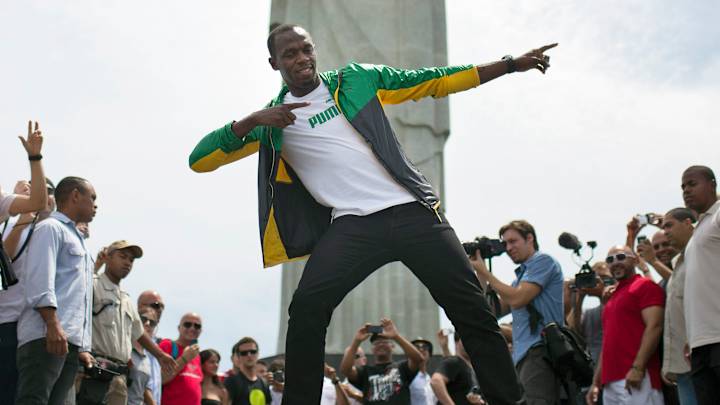With Rio next, Olympics still a major draw on television

NEW YORK (AP) The Olympics move at their own pace, when an athlete can go from unknown to celebrity in a matter of hours.
Fans who will tune in loyally every night during the games might not have been aware a few weeks earlier of the date of the opening ceremony. That's why NBC executives are heartened by research they did more than a year before the start of the Rio Olympics.
In surveying viewers about the upcoming fall TV schedule, the network also asked about the 2016 Summer Games. About half of respondents knew they're in Rio - the highest number NBC Sports Group chief marketing officer John Miller has seen at that juncture.
''It reflects on the power of the last three or four Olympic Games,'' said Miller, who is also the chair of the NBCUniversal Marketing Council.
Viewership grew from the 2004 Athens Summer Games to the 2008 Beijing Olympics to the 2012 London Games, and Miller believes the 2016 Olympics can do at least as well. With the event in Brazil, which is only an hour ahead of the Eastern time zone, many high-profile competitions can air live in prime time in the U.S. - unlike London.
Ad sales are on pace with those for London, and the network expects to exceed the final numbers from four years ago, said Seth Winter, NBCUniversal's executive vice president for sports advertising sales.
''There is not a single person that is not enthusiastic about these games because they saw how well we did and what we delivered in London,'' Winter said, ''and the enthusiasm of a live games.''
The Olympics' enduring popularity is an unlikely mix of old-fashioned entertainment and new-fangled technology. With so many different events taking place at all hours of the day and night, they have proven a perfect fit for streaming video, which has boosted interest in the games. The constant action also means the Olympics can dominate social media, and Miller believes that explains the increased attention from hard-to-reach younger fans.
But this world of instant updates on Twitter would also seem to make tape-delayed prime-time Olympic broadcasts obsolete. Instead, millions of Americans are still willing to watch even when they know what happened - though that will be less of a factor in Rio.
At the same time, viewers treat those recorded telecasts as if they're live. They're far less likely to wait until the next day to catch up on the DVR as they do with other popular TV shows, Miller said.
The scale of the Olympics is just too big to do that, he added, and those viewing habits are valuable to advertisers.
Sports in general have become increasingly effective for advertisers for the same reason that people will watch them live instead of fast-forwarding through the commercials on the DVR. Most sports ratings have also held up better than other entertainment on television in an era of multiplying options and niche programing.
And yet the Olympics remain popular even though they have as much in common with prime-time dramas as with other sports.
''Most actual human beings watch the Olympics because they provide more than just competition,'' Miller said.
Even as Americans click their remote controls to an ever-widening assortment of shows, they still value a sense of community, a common topic to chat about, said Smith College economics professor Andrew Zimbalist.
''It's like talking about the weather,'' said Zimbalist, who studies the financial impact of major sporting events.
But with patriotism sprinkled in. As the women's and men's World Cups of the last two summers have proven, Americans still love to gather together to cheer on a feel-good story of their country's national squad.
''Politicians can't pass bills, can't get along, but we can all root for the U.S. Olympic team,'' Miller said.
Once every two years, at least, for the Summer and Winter Games.
''Whenever something is scarce, it makes it more special,'' Zimbalist said.
In the meantime, last summer's World Cup in Brazil offered free advertising that the Olympics would be arriving in the country in 2016. And controversies such as concerns over the water quality at competition sites in Rio tend to only remind fans that the Summer Games are coming soon.
NBCUniversal is showing a 60-second Olympic promo on all of its 18 broadcast and cable networks at 8 p.m. to commemorate one year to go.
From a television perspective, what matters about 2016 are Brazil's stunning vistas that can be beamed onto high-definition televisions.
''I drove right by the lagoon,'' said Winter, who was recently in Rio, ''and I can't attest to the quality of the water because I'm not a chemist, but I didn't see any debris floating or anything anywhere. The environment is frankly gorgeous.''
